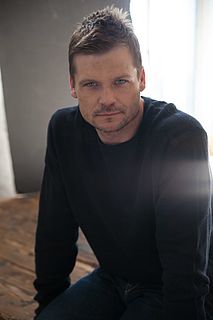A Quote by Timothy West
A conventional playwright tries to tell you more about the characters than they know about themselves.
Quote Topics
Related Quotes
All writers write about themselves, just as the old storytellers chose to tell stories that spoke to and about themselves. They call it the world, but it is themselves they portray. The world of which they write is like a mirror that reflects the inside of their hearts, often more truly than they know.
People do tell a writer things that they don't tell others. I don't know why, unless it is that having read one or two of his books they feel on peculiarly intimate terms with him; or it may be that they dramatize themselves and, seeing themselves as it were as characters in a novel, are ready to be as open with him as they imagine the characters of his invention are.
What I love about 'Breaking Bad' is the reflection of many people's - it's more real in terms of people have faults, people have character traits that they don't like about themselves. It resembles more of what the human journey really is and it's less fantastic and hero-driven than other characters and shows that we watch.
I said to him, "Shall I tell you where the men are who believe most in themselves? For I can tell you. I know of men who believe in themselves more colossally than Napoleon or Caesar. I know where flames the fixed star of certainty and success. I can guide you to the thrones of the Super-men. The men who really believe in themselves are all in lunatic asylums.
We live in a world of nuclear giants and ethical infants, in a world that has achieved brilliance without wisdom, power without conscience. We have solved the mystery of the atom and forgotten the lessons of the Sermon on the Mount. We know more about war than we know about peace, more about dying than we know about living.




































